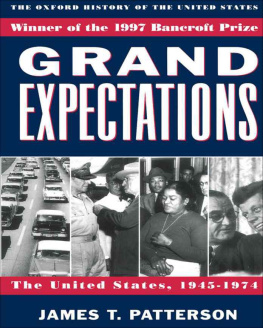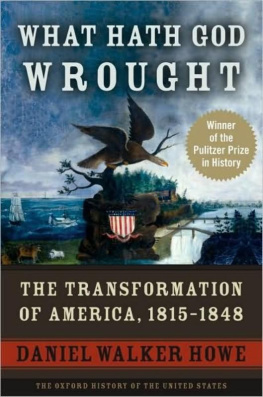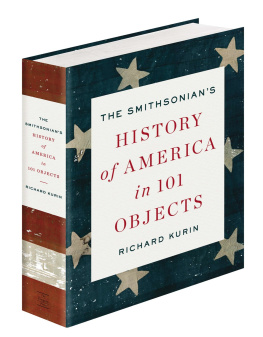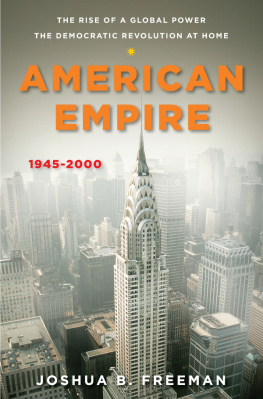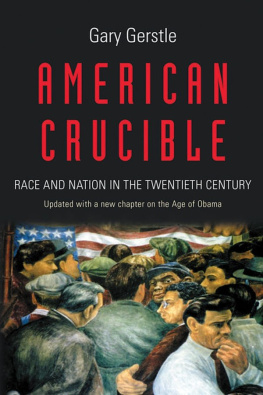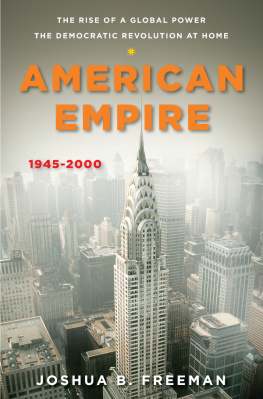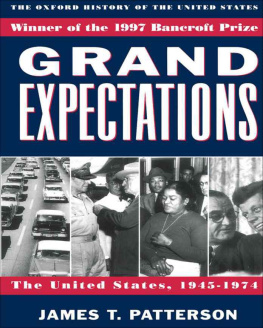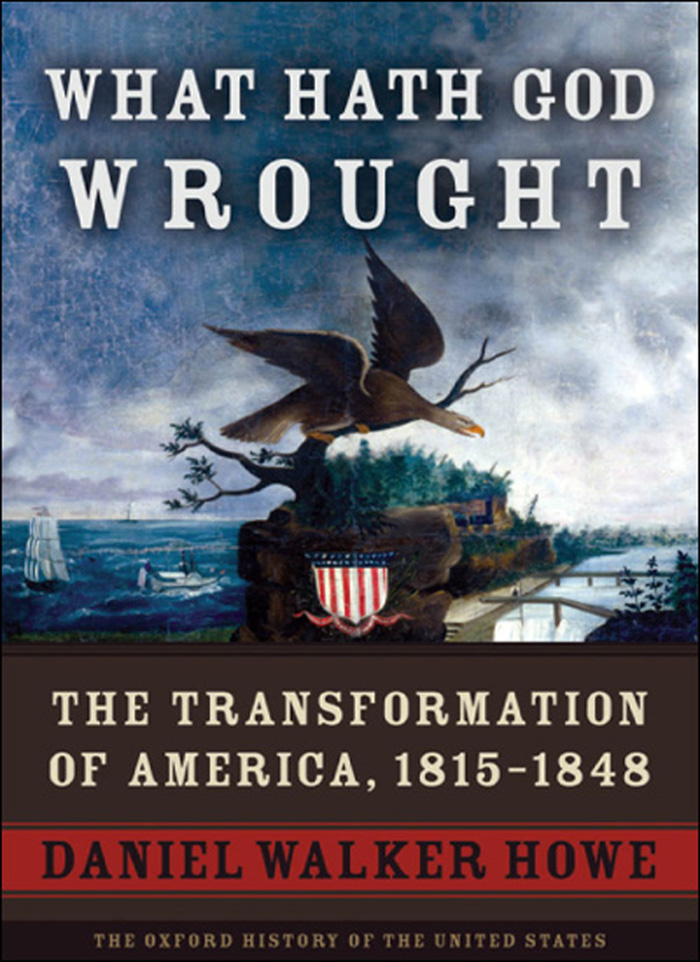
What Hath God Wrought
The Oxford History of the United States
David M. Kennedy, General Editor
ROBERT MIDDLEKAUFF
THE GLORIOUS CAUSE
The American Revolution, 17631789
DANIEL WALKER HOWE
WHAT HATH GOD WROUGHT
The Transformation of America, 18151848
JAMES M. MCPHERSON
BATTLE CRY OF FREEDOM
The Civil War Era
DAVID M. KENNEDY
FREEDOM FROM FEAR
The American People in Depression and War, 19291945
JAMES T. PATTERSON
GRAND EXPECTATIONS
The United States, 19451974
JAMES T. PATTERSON
RESTLESS GIANT
The United States from Watergate to Bush v. Gore
WHAT HATH GOD WROUGHT
The Transformation of America, 18151848
DANIEL WALKER HOWE


Oxford University Press, Inc., publishes works that further
Oxford Universitys objective of excellence
in research, scholarship, and education.
Oxford New York
Auckland Cape Town Dar es Salaam Hong Kong Karachi
Kuala Lumpur Madrid Melbourne Mexico City Nairobi
New Delhi Shanghai Taipei Toronto
With offices in
Argentina Austria Brazil Chile Czech Republic France Greece
Guatemala Hungary Italy Japan Poland Portugal Singapore
South Korea Switzerland Thailand Turkey Ukraine Vietnam
Copyright 2007 by Oxford University Press, Inc.
Published by Oxford University Press, Inc.
198 Madison Avenue, New York, NY 10016
www.oup.com
Oxford is a registered trademark of Oxford University Press
All rights reserved. No part of this publication may be reproduced,
stored in a retrieval system, or transmitted, in any form or by any means,
electronic, mechanical, photocopying, recording, or otherwise,
without the prior permission of Oxford University Press.
Library of Congress Cataloging-in-Publication Data
Howe, Daniel Walker.
What hath God wrought : the transformation of America,
18151848 / Daniel Walker Howe.
p. cm. (Oxford history of the United States)
Includes bibliographical references and index.
ISBN 978-0-19-507894-7
1. United StatesHistory18151861.
2. United StatesForeign relations18151861.
3. United StatesPolitics and government18151861.
4. United StatesEconomic conditionsTo 1865.
5. Social changeUnited StatesHistory19th century. I. Title.
E338.H69 2007 973.5dc22 2007012370
1 2 3 4 5 6 7 8 9
Printed in the United States of America
on acid-free paper
To the Memory of
John Quincy Adams
Whatever the heats of party may be, however the tone of disappointment against Mr. Adams may sometimes rise to something too like hatred, there is undoubtedly a deep reverence and affection for the man in the nations heart; and any one may safely prophesy that his reputation, half a century after his death, will be of a very honourable kind. He fought a stout and noble battle in Congress last session in favour of discussion of the slavery question, and in defence of the right of petition upon it; on behalf of women as well as of men. While hunted, held at bay, almost torn to pieces by an outrageous majorityleaving him, I believe, in absolute unityhe preserved a boldness and coolness as amusing as they were admirable. Though he now and then vents his spleen with violence when disappointed in a favourite object, he seems able to bear perfectly well that which it is the great fault of Americans to shrink from, singularity and blame. He seems, at times, reckless of opinion; and this is the point of his character which his countrymen seem, naturally, least able to comprehend.
Harriet Martineau,
Retrospect of Western Travel, 1838
Acknowledgments
This book has been a long time in the making, and many people have helped make it. I should like to thank Peter Ginna, Susan Ferber, Joellyn Ausanka, the late Sheldon Meyer, and the late C. Vann Woodward for their confidence and wise counsel.
David Kennedy, editor-in-chief of the Oxford History of the United States, read my drafts with patience, care, and insight. James McPherson, Daniel Feller, and Richard R. John each read the whole long manuscript, made valuable comments, and saved me from many a mistake. Professor Johns unequaled knowledge of the communications revolution proved indispensable. A number of scholars gave generously of their expertise on particular subjects: Joyce Appleby, Gabor Boritt, Michael Holt, Naomi Lamoreaux, Mark Neely, Barbara Packer, William Pencak, Donald Ratcliffe, Timothy Roberts, Kathryn Kish Sklar, Conrad Wright the younger, and John Yoo. Of course, I am responsible for whatever faults may remainall the more so because I did not always follow advice received.
Research grants supporting the work that made this book possible came from Oxford Universitys Rothermere American Institute, the Academic Senate of the University of California at Los Angeles, the Institute for the Advanced Study of Religion at Yale University, the Bellagio Study Center of the Rockefeller Foundation, and the R. Stanton Avery Distinguished Fellowship of the Huntington Library. The continued hospitality of the Huntington and the graciousness of its staff have provided an ideal environment for research and writing. For a happy decade I enjoyed the company and intellectual stimulation of the Master and Fellows of St. Catherines College, Oxford. A series of talented research assistants over the years have included Martin Meenagh and Rebecca Webb at Oxford; Julia Ott at Yale; and Michael Bottoms, Michael Hawkins, Rebecca Hood, Susan Kim, Anne Lescoulie, and Richard Lester at UCLA. Freddie LaFemina assisted at a critical juncture. India Cooper is the ideal copy editor.
Sandra Shumway Howe and Stephen Walker Howe read the manuscript chapter by chapter as I wrote it, and offered both comments and encouragement over the long haul.
March 2007 D.W.H.
In 1844, near the end of the period covered in this volume of The Oxford History of the United States, Ralph Waldo Emerson proclaimed that America is the country of the Future. It is a country of beginnings, of projects, of vast designs and expectations. Emerson spoke a common sentiment in that heady age of what might be called Americas national adolescence. In scarcely more than two generations since its founding, the young nation had stretched its domains to the Rocky Mountain crest and stood poised to assert its sovereignty all the way to the Pacific coast. The American people, lustily doubling their numbers every two decades, dreamed without embarrassment of extravagant utopias both spiritual and secular. Their economy, fueled by startling new technologies like the telegraph and the railroad, was growing robustly. Their churches were rocked by revivalism, even as their political system was giving the world an exhilarating lesson in the possibilities of mass democracy.
Yet Emersons America was already a country with a past. Its history held peril as well as promisenot least the noxious heritage of chattel slavery, a moral outrage that mocked the Republics claim to be a model of social and political enlightenment and eventually menaced the nations very survival.
What Hath God Wrought recounts a critical passage in that history. It opens on a note both ironic and prophetic: Andrew Jacksons storied victory over a crack British force at the Battle of New Orleans in 1815. Ironic because the battle was fought some two weeks
Next page

